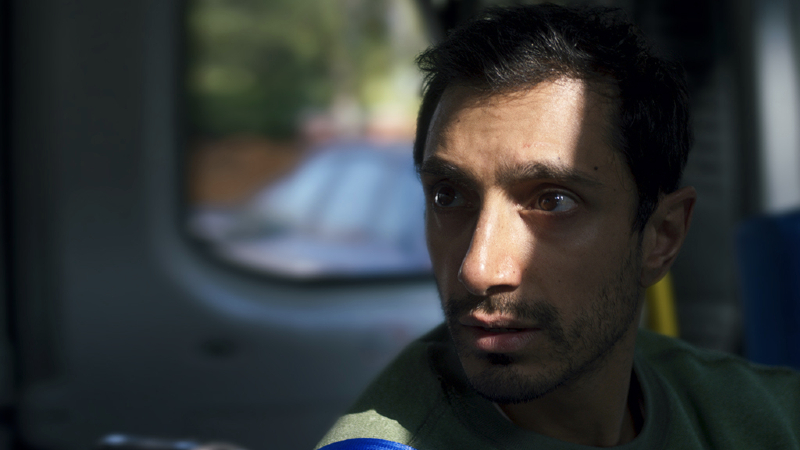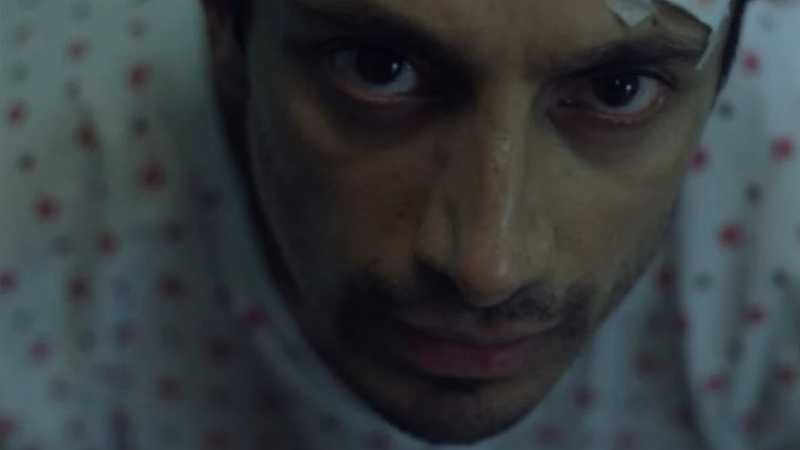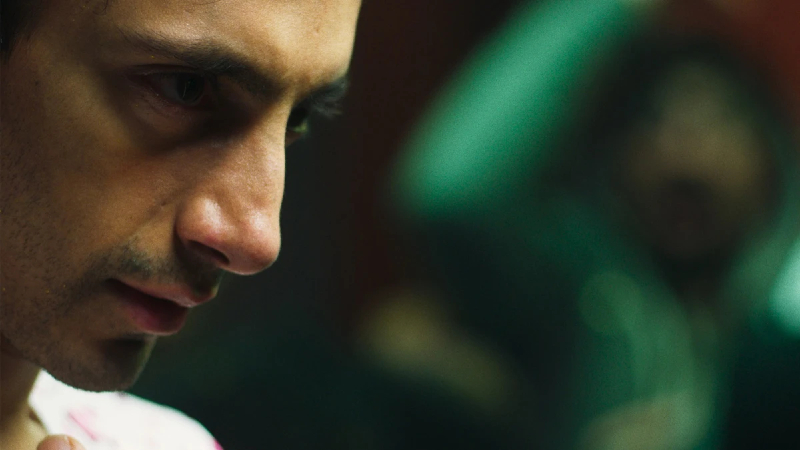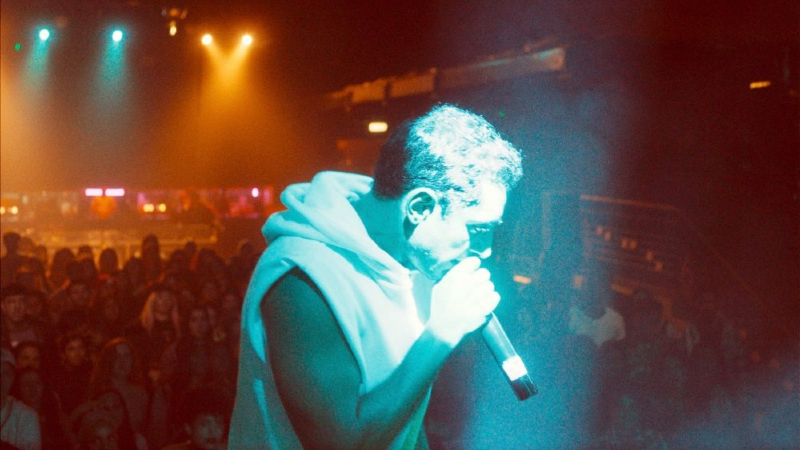Director – Bassam Tariq – 2020 – UK – Cert. 15 – 90m
****
A UK British Pakistani rap artist is stopped in his career tracks by an auto-immune system suppression illness – in cinemas from Friday, October 30th and on BFI Player Subscription Exclusive from Friday, February 5th
This opens with British Pakistani rapper Zed (Riz Ahmed, who also co-wrote the film) waiting in the wings then going on stage to perform before a massively enthusiastic New York crowd. I had fairly high expectations and my heart sank. Ahmed’s performance as the singer was leaving me absolutely cold. (To be fair, I’m not a huge fan of rap music.) Happily I was much more impressed with almost everything that followed.
This opening performance turns out to be the final leg of a tour. Zed has a major European Tour planned imminently. Back in Britain, he gets into a street fight with a fan/stalker and in the course of the resultant fight starts to experience severe stomach pains. He wakes up in the local hospital to learn that he’s suffering from an auto-immune system suppression illness and consequently will be unable to tour. He’s horrified by the the suggestion from his trusted manager Vaseem (Anjana Vasam) that his admirer and rival performer RPG (Nabhaan Rizwan), whom Zed despises, can cover for him on the European Tour. Nevertheless, Zed is going to have to stay in hospital and undergo the treatment.

And that’s the film. A Muslim media professional, on the verge of a huge career break likely to shape his future career, is forced to step back (when he doesn’t have the time to do so) by life events. This puts him in a situation where all manner of inner demons start to manifest themselves – issues about his religion, issues about his parents, issues about his ethnic background, issues about his art, all emotionally mixed up and rolled into one.
At first, Zed thinks the NHS treatment will help him make a swift recovery and then he’ll be able to carry on with his career as normal, but it slowly dawns on him that this isn’t going to happen. His muscles have weakened and the lady doctor in charge of him makes a bargain: if he can walk unaided to the lift she’ll discharge him. It’s unlikely he’ll be able to achieve this. He struggles to work out on the exercise rooms parallel bars and there are times he can’t even manage to life himself off the lavatory seat. The challenge of the journey to the lift takes on the significance of a quest on which he’s destined to meet defeat.

With his world reduced to the hospital ward as his treatment progresses, Zed clutches at straws. An experimental treatment is offered him that may help, but the potential side effects may damage his ability to have children. “What are we without kids?” asks his dad Bashir (Alvy Khan) who, fearing for his son’s future fertility, pushes him into alternative treatment involving scalpel cuts and a series of heated glass cups applied to Zed’s back.
Zed is advised to produce sperm before the NHS treatment so he can have it stored in a bank to produce a family later. About to do the deed, Zed phones up his New York-based girlfriend Bina (Alysha Hart) who unceremoniously dumps him with the immortal line, “why would I inject myself with an ex-boyfriend’s sperm?”, then proceeds to call him selfish.

Some of the material here make not make sense to people who aren’t Muslim or British Pakistani, and perhaps it won’t make any sense to those who are one of those but not both. I’m thinking of the scenes, first in the mosque but later elsewhere, in which Zed sees a figure who looks like a shaman, his head obscured by dangling beads. The figure seems to be of great ethnic and/or religious significance which proved completely baffling to this religion-friendly, white British viewer, although I found myself intrigued and wanting to know what all that was about.
Despite such shortcomings, there’s still enough going on that, although this is set against a very specific British Pakistani Muslim cultural ethnic background, it transcends that background so that a wider audience can relate to most of it. As the narrative tips its hat to the wondrous, free to all UK citizens institution that is the NHS, the emotions conveyed in the overall narrative are nothing less than gut-wrenching.
Mogul Mowgli is out in cinemas in the UK on Friday, October 30th and on BFI Player Subscription Exclusive from Friday, February 5th.
Trailer:
